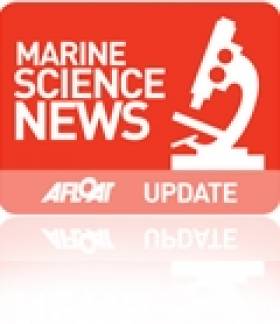Displaying items by tag: EurOCEAN 2014
EurOCEAN 2014 during Italian-EU Presidency Conference
#EurOCEAN – CEO of the Marine Institute, Dr Peter Heffernan yesterday welcomed the announcement of the EurOCEAN 2014 Conference in Rome recalling the very successful EurOCEAN 2004 Galway Conference and the 2004 Galway Declaration on Marine Science & Technology.
The Galway Declaration, and subsequent EurOCEAN Conference Declarations (Aberdeen, 2007 and Ostend, 2010), have made significant contributions to the EU's Marine Research Agenda and the Integrated Maritime Policy for the European Union (2007). He looked forward to an equally influential Declaration from the Rome Conference.
EurOCEAN 2014 (7th – 9th October 2014, Rome) will bring together marine scientists across the broad range of disciplines with policymakers, industry and NGOs, to develop a common vision on achieving an ecosystem approach to the management of Europe's marine resources as a fundamental requirement for sustainable Blue Growth. Highlighting the importance of Blue Growth and of commercially-driven, problem-oriented research, EurOCEAN 2014 will equally emphasize that a growing and sustainable maritime economy will also require a much greater knowledge and understanding of marine ecosystem functioning and resilience.
For 2.5 days EurOCEAN 2014 cover a combination of plenary sessions and parallel workshops, organized around societal, policy and regional challenges. The conference programme will reflect the high-level messages of the European Marine Board's Navigating the Future-IV Foresight Report.
The EurOCEAN 2014 conference is part of the successful EurOCEAN Conference Series initiated in late 1990s to provide a regular focal point for the marine and maritime research community and stakeholders to interact with European and member state policymakers and programme managers, to discuss and respond to new marine science and technology developments, challenges and opportunities.
EurOCEAN 2014 is an official event of the Italian EU Presidency and is co-organized by the European Marine Board, European Commission and the Italian EMB members, CNRS, OGS and CoNISMA.
For further information see: http://eurocean2014.eu/






























































